The movie
The Great Dictator is a 1940 American political satire (black comedy). It was written, directed and produced by Charlie Chaplin. Chaplin is also the main protagonist. The cast also includes Paulette Goddard, Jack Oakie and Reginald Gardiner.
Chaplin was the only Hollywood filmmaker who continued to produce silent films during the sound film period. The Great Dictator was Chaplin’s first true sound film. (See also a previous post The nonsense song).
The Great Dictator is Chaplin’s most commercial film. Critics consider it as one of the greatest comedy movies ever made. It was nominated for five Academy Awards – Outstanding Production, Best Actor, Best Writing (Original Screenplay), Best Supporting Actor for Jack Oakie, and Best Music (Original Score).
The story is about a barber (played by Chaplin) who lives in a fictional country, named Tomainia. The country’s political regime is a dictatorship. The barber is in love with his neighbor, Hannah (played by Goddard). The important clue is that the barber greatly resembles with the dictator.
Hynkel, the dictator (played also by Chaplin), orders a purge of the Jews. Many try to resist persecution by military forces. Yet, most of them are sent to concentration camps. The barber is arrested, while Hannah and her family flee to freedom at a vineyard in the neighboring country of Osterlich.
After a dispute with Benzino Napaloni, the dictator of another fictional country, Bacteria (played by Oakie), Hynkel decides to invade Osterlich.
Because of the resemblance, the real Hynkel is mistaken for the barber while out duck hunting in civilian clothes. He is knocked out and taken to a camp.
The barber escapes from the camp. He is chased towards Osterlich and decides to go to the platform, where Hynkel is going to deliver his speech, and impersonate the dictator.
The barber announces that he (as Hynkel) has had a change of heart and makes an impassioned speech for brotherhood and goodwill, encouraging soldiers to fight for liberty, and unite the people in the name of democracy.
The scene
Hynkel remains alone at his office. He stares at a big balloon, the Globe, and suddenly he begins to dance with it. The whole scene is accompanied by the Prelude of Wagner’s Opera Lohengrin.
Chaplin finds again a way to come back to his great love – the silent movie. Indeed, without saying a word, the scene is one of the greatest in his career and most probably one of the most iconic in the cinema history.
The Great Dictator certainly deserves a leading place in any cinephile library.
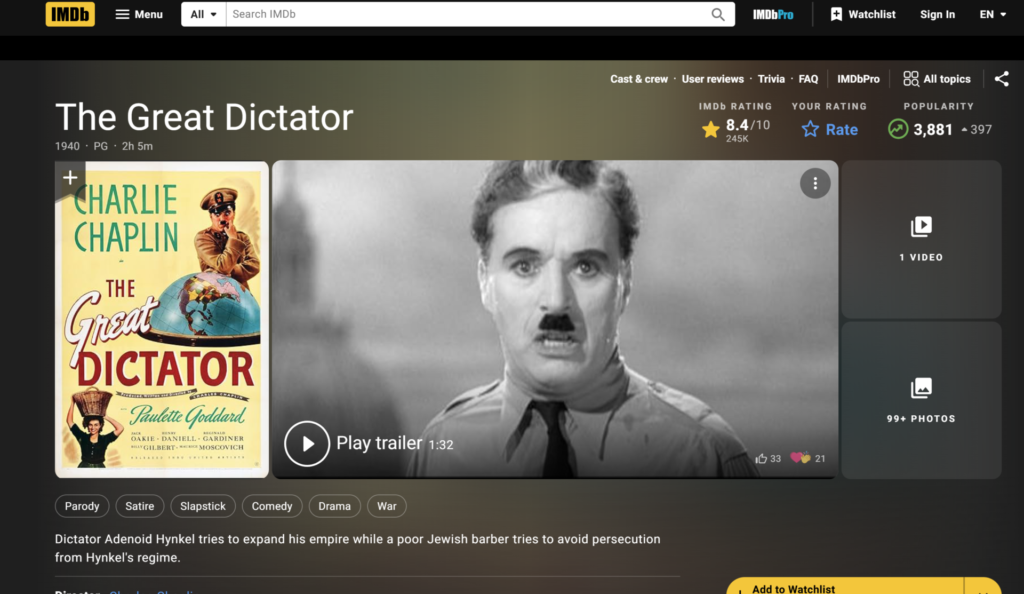
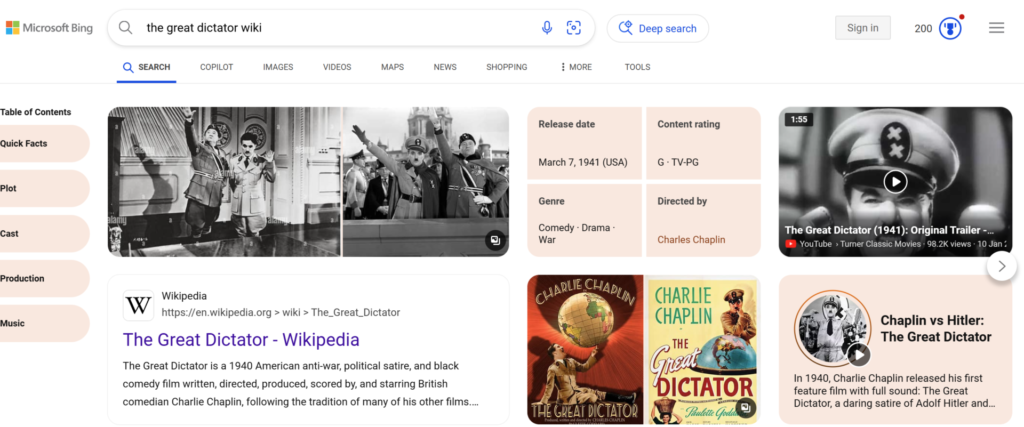
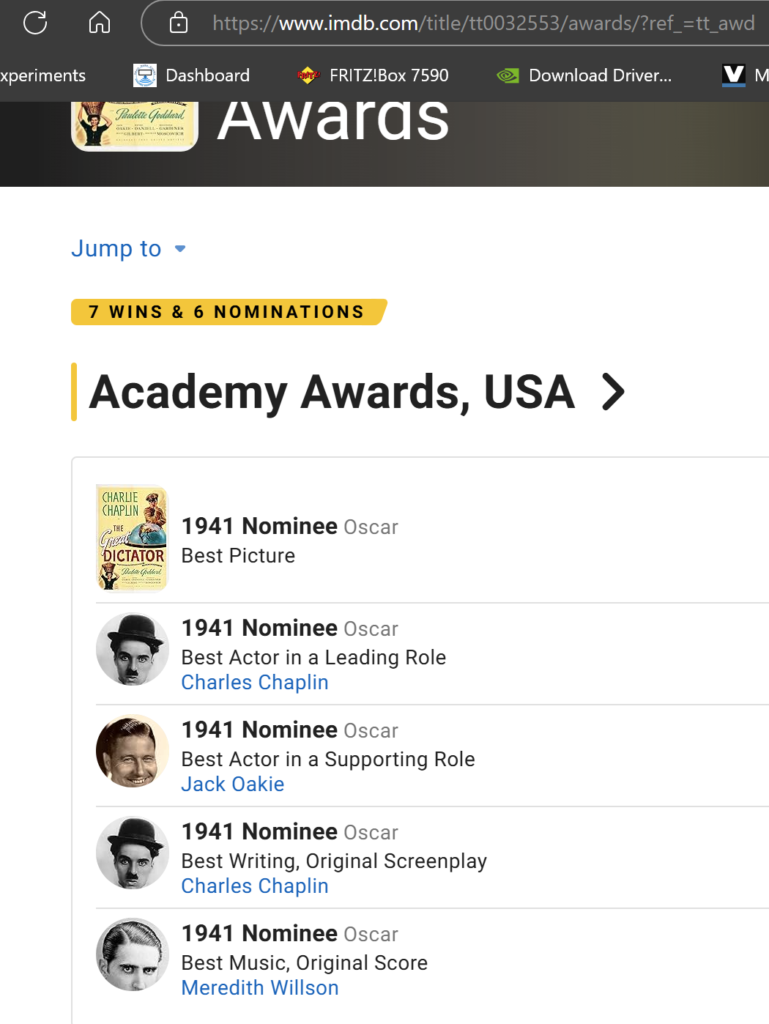
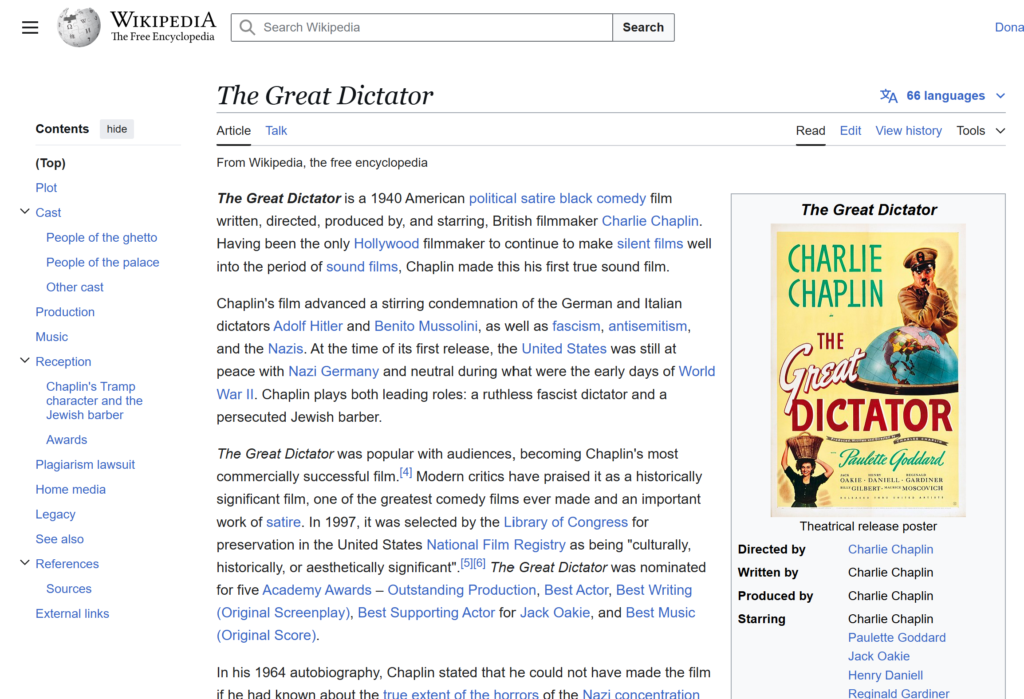
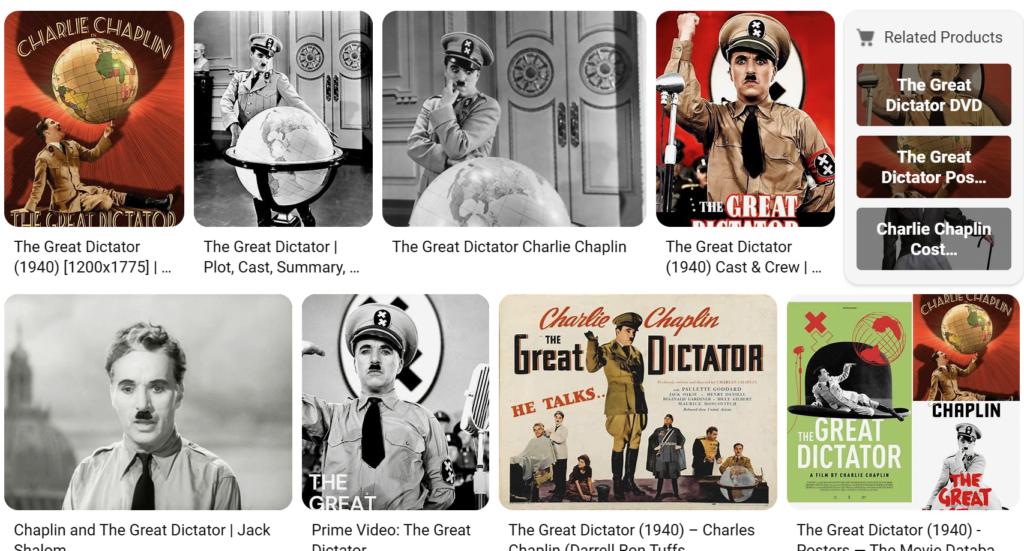

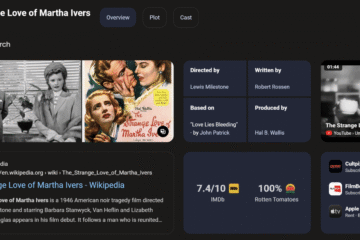
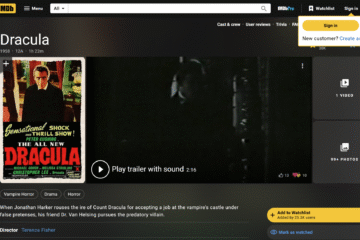
0 Comments